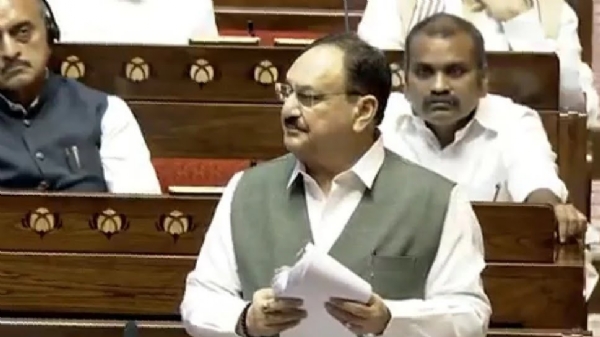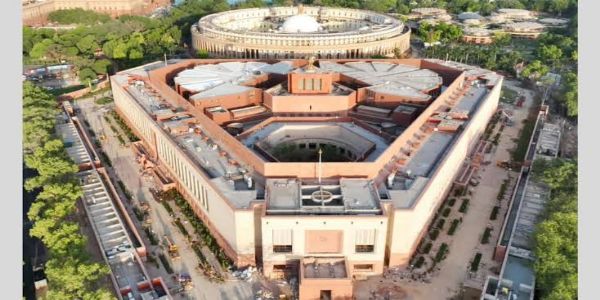
Delhi, 30 July (H.S.): During a session in Rajya Sabha onn Wednesday, Union Minister JP Nadda emphasized the vital role of political leadership in guiding armed forces, alluding to the significance of decisive governance during national security challenges. Highlighting Operation Sindoor, he noted its precision and referenced past failures of the Congress-led government, particularly in responding to multiple terror incidents. He claimed that the inability to act decisively after severe attacks like those in Delhi, Varanasi, and Mumbai reflected the insensitivity of previous administrations.
Nadda criticized former leaders for their lack of robust national security strategies, quoting a previous Defence Minister's policy which suggested that neglecting border development would provide safety. He also mentioned comments from a former Home Minister expressing fear about visiting Kashmir, arguing that such attitudes contributed to a culture of complacency towards terrorism. He contrasted this with the Modi government's stance, claiming that since 2014, terror attacks in India have ceased except in Jammu and Kashmir.
During the discourse, Nadda illustrated the Congress government's pattern of inaction following significant terrorist events, such as the 2005 serial bomb blasts and subsequent attacks. He articulated that despite these threats, trade and tourism with Pakistan continued unhindered, implying that the previous administration’s approach was ineffective and guilty of appeasement.
Nadda further condemned the Congress for its handling of the aftermath of the 2008 Jaipur bombings, characterized as weak and overly conciliatory. He invoked strong imagery to critique this period, stating, “While we were being shot at, they were trying to serve biryani,” referring to the supposed leniency shown towards Pakistan during tense times.
The session in Rajya Sabha continued with other prominent leaders contributing to the discussion. External Affairs Minister S. Jaishankar initiated the dialogue on Operation Sindoor, attended by a range of speakers scheduled to share their insights. Comparatively, Prime Minister Modi also responded to criticisms surrounding the issue of Pakistan-occupied Kashmir, asserting that it was incumbent on the Congress to answer for their historical failures, particularly dating back to Jawaharlal Nehru’s era.
Nadda, furthering his argument, suggested that the previous Congress-led administrations did not possess the determination required to confront and neutralize terrorist threats effectively, ultimately leading to a prolonged era of inaction. His remarks not only critiqued past governance but also positioned the current regime as one of resilience and responsiveness to terrorism.
He concluded by underscoring the ongoing importance of robust political leadership, which he argued is essential in mobilizing and directing military action in the face of existential threats. This narrative serves to bolster the current government’s image as one that possesses the resolve necessary to safeguard national interests effectively.
Hindusthan Samachar / Jun Sarkar








